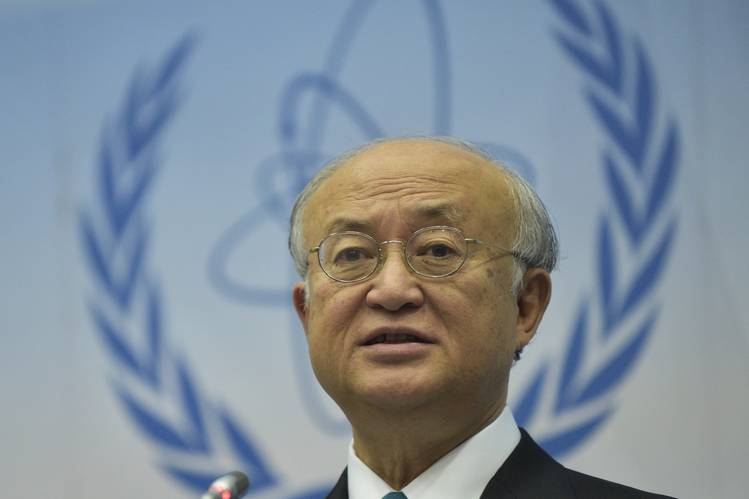The head of the United Nations nuclear watchdog expressed confidence that five months would be enough time to investigate and report on Iran’s past nuclear work while conceding the challenge was like assembling a jigsaw puzzle.
The International Atomic Energy Agency is charged with ensuring Iran complies with a nuclear agreement reached this week with six world powers.
Action began on the deal Wednesday. The U.S. circulated a U.N. Security Council resolution to endorse it and eventually lift most U.N. sanctions on Tehran but allow the U.S. to use its veto to restore them if Iran is seen to be violating the nuclear deal. The terms were negotiated in Vienna by the five permanent Security Council members and is expected to be passed in the coming days, a U.S. official said.
Iran’s past nuclear activities were always one of the thorniest issues in the negotiations. Many Western officials believe the work was aimed at developing nuclear weapons know-how. Tehran denies it ever worked on weapons technology, saying its program was for peaceful purposes only.
U.S. and European officials have long demanded that any sanctions relief be linked with Tehran’s willingness to shed light on 12 sets of concerns about its past work that IAEA chief Yukiya Amano first raised in a 2011 report—a condition that was included in Tuesday’s final agreement.
Mr. Amano moved center stage in the long negotiations when he made a snap visit to Tehran to discuss the emerging deal with Iranian leaders on July 2.
In an interview in his Vienna office, the 68-year-old diplomat said that a side agreement he struck with Iranian authorities for completing the probe by Dec. 15 was doable—if Iran is serious about engaging.







